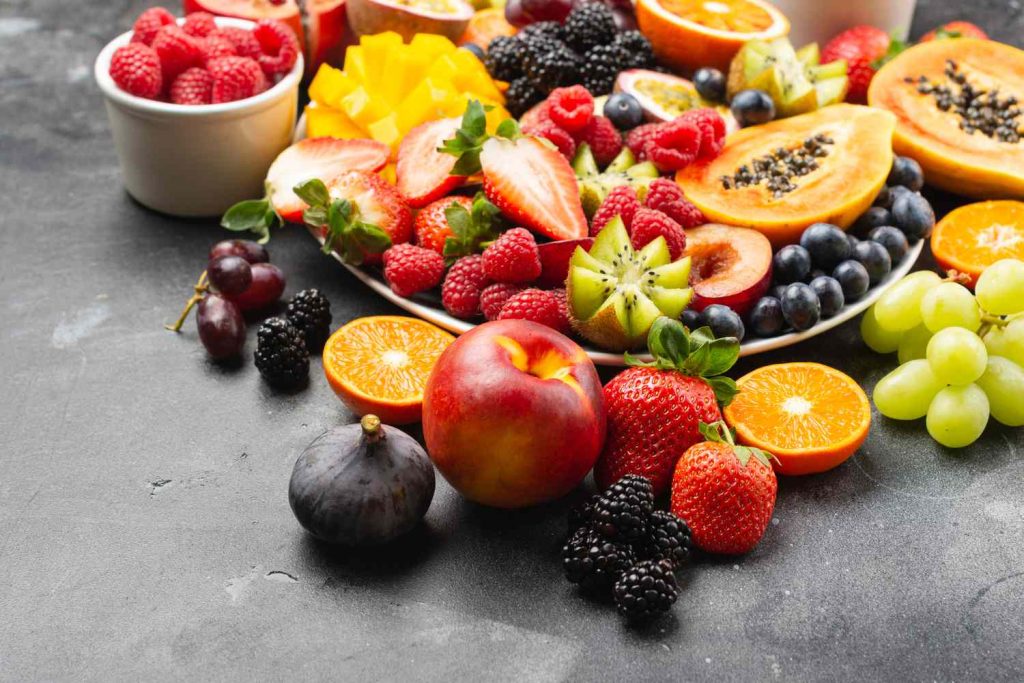Eating a variety of fruits daily is one of the easiest ways to boost your health. Packed with essential vitamins, minerals, antioxidants, and fiber, fruits play a crucial role in enhancing overall wellness. They help combat inflammation, reduce the risk of chronic diseases like heart disease and diabetes, and even promote glowing skin. In this article, we’ll dive into the 12 most nutritious fruits, their health benefits, and how to incorporate them into your diet effectively.

Why Fruits are Essential for a Healthy Diet
Fruits are nature’s powerhouse of nutrients. They offer:
- Vitamins and Minerals: Critical for bodily functions.
- Dietary Fiber: Supports digestion and promotes gut health.
- Antioxidants: Protect cells from oxidative stress and reduce the risk of chronic diseases.
Consuming a colorful variety of fruits ensures you get a broad spectrum of phytonutrients that aid in overall well-being.
The 12 Most Nutritious Fruits You Should Eat
1. Lemons: A Vitamin C Powerhouse
Lemons are rich in vitamin C and antioxidants that support immune health and fight harmful free radicals. They also contain folate, potassium, and pectin, aiding in digestion and promoting heart health.
How to Use Lemons
- Add lemon juice to water for a refreshing drink.
- Use it in marinades, salads, or as a flavor enhancer in recipes.
2. Strawberries: Heart-Healthy and Delicious
Strawberries are packed with vitamin C, fiber, and anthocyanins, which help improve heart health and reduce inflammation.
How to Use Strawberries
- Blend into smoothies or add to cereal.
- Enjoy raw as a snack or make a jam.
3. Oranges: Boost Your Immunity
Oranges are rich in vitamin C, essential for immune support. Their pectin content helps improve gut health, while other nutrients like folate and potassium promote heart health.
How to Use Oranges
- Drink freshly squeezed orange juice.
- Add orange segments to salads or yogurt.
4. Limes: A Zesty Nutritional Boost
Limes are known for their antibacterial properties and high vitamin C content. They support collagen production and enhance skin health.
How to Use Limes
- Squeeze lime juice over salads or fish.
- Add to warm water for a detox drink.
5. Grapefruit: A Weight-Loss Friendly Fruit
Grapefruits are low in calories and rich in vitamin C and flavonoids. They may help reduce the risk of obesity and certain types of cancer.
How to Use Grapefruits
- Enjoy as a breakfast fruit.
- Add slices to a fruit salad.
6. Blackberries: Packed with Fiber
Blackberries are loaded with antioxidants like anthocyanins and are an excellent source of dietary fiber, which promotes heart and gut health.
How to Use Blackberries
- Mix into yogurt or oatmeal.
- Add frozen blackberries to smoothies.
7. Apples: A Heart-Healthy Snack
High in fiber and quercetin, apples are great for weight management and reducing the risk of cardiovascular diseases.
How to Use Apples
- Pair with nut butter for a healthy snack.
- Use applesauce as a natural sweetener in baking.
8. Pomegranate: The Superfruit
Pomegranates are rich in antioxidants and polyphenols that combat inflammation and may reduce the risk of chronic diseases like Alzheimer’s and cancer.
How to Use Pomegranates
- Sprinkle the seeds on salads or desserts.
- Add to smoothies or yogurt bowls.
9. Pineapple: Anti-Inflammatory Benefits
Pineapple contains bromelain, which reduces inflammation and supports digestion. It’s also high in vitamin C and manganese.
How to Use Pineapple
- Add slices to tropical smoothies.
- Use as a topping for grilled meats or in salsas.
10. Bananas: A Potassium-Rich Energy Source
Bananas are excellent for maintaining blood pressure and providing a quick energy boost. Their high fiber content aids digestion.
How to Use Bananas
- Add to oatmeal or pancakes.
- Use as a natural sweetener in baking.
11. Avocado: A Healthy Fat Superfood
Avocados are rich in monounsaturated fats, potassium, and lutein, which support heart health and skin health.
How to Use Avocado
- Mash into guacamole or spread on toast.
- Blend into smoothies for a creamy texture.
12. Blueberries: Antioxidant-Rich and Heart-Friendly
Blueberries are a nutrient-dense fruit with anthocyanins that support heart health and prevent arterial plaque buildup.
How to Use Blueberries
- Sprinkle on cereal or yogurt.
- Add to baked goods like muffins or pancakes.
Frequently Asked Questions
1. What makes a fruit nutritious?
A fruit’s nutrition comes from its content of vitamins, minerals, fiber, and antioxidants, all of which support various bodily functions and protect against diseases.
2. Which fruit is the healthiest to eat daily?
Berries, particularly blueberries and strawberries, are considered the healthiest due to their high antioxidant levels and heart-protective benefits.
3. Can eating fruits help with weight loss?
Yes, fruits are low in calories and high in fiber, which promotes fullness and reduces calorie intake, aiding in weight loss.
4. How many servings of fruit should I eat daily?
Experts recommend 2–3 servings of fruit daily to meet nutritional needs.
5. Are there fruits that improve skin health?
Yes, citrus fruits like oranges and lemons are high in vitamin C, which supports collagen production, enhancing skin health.




